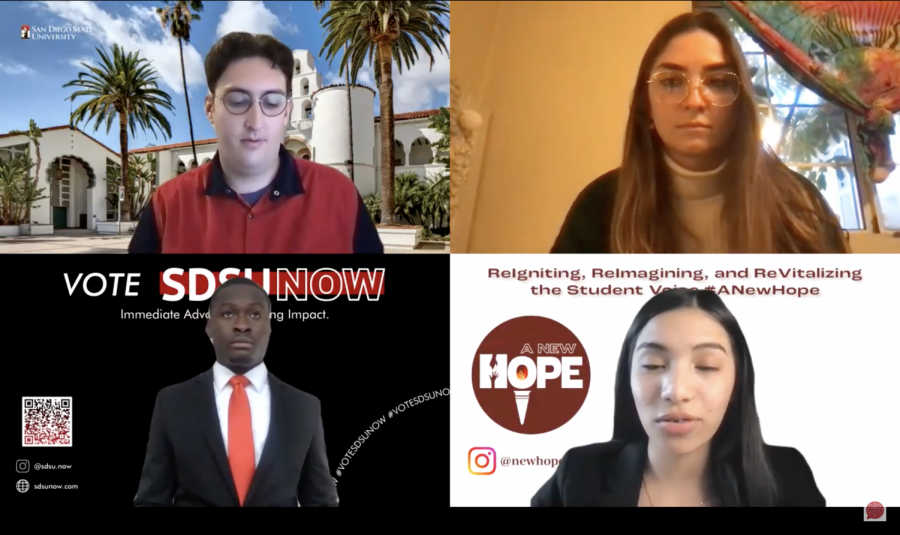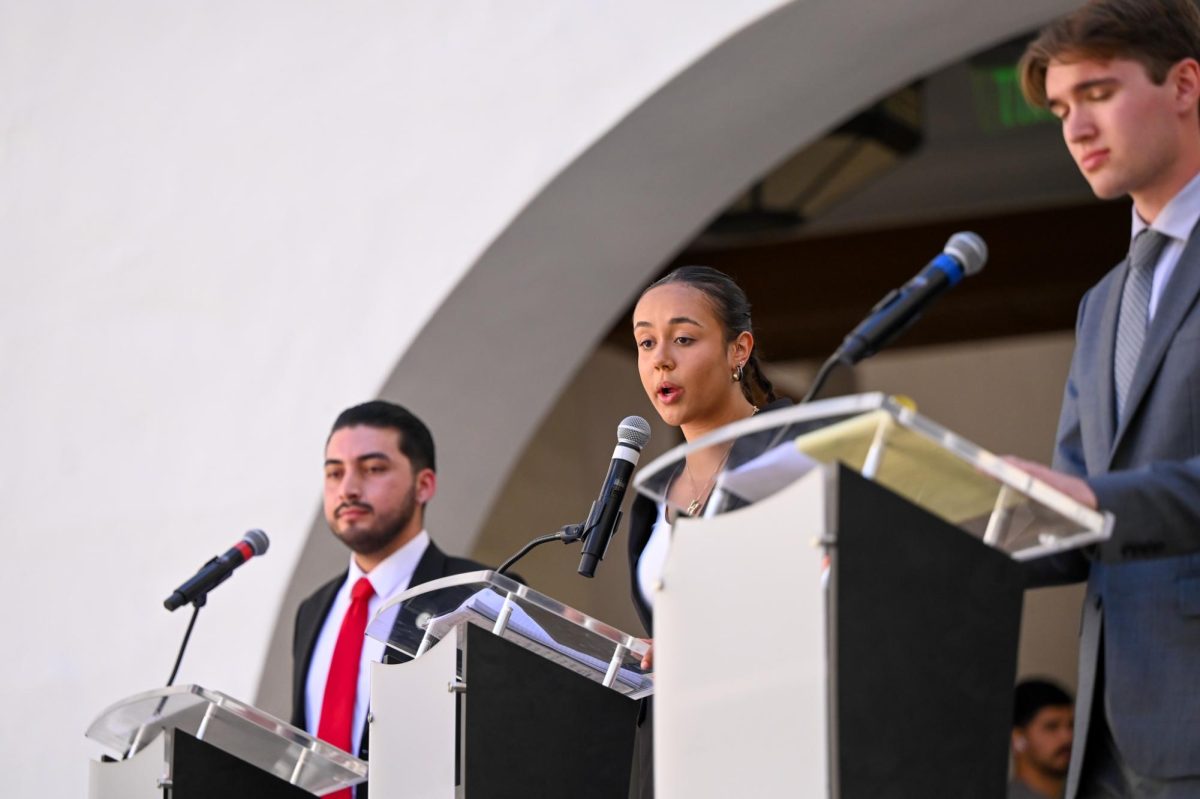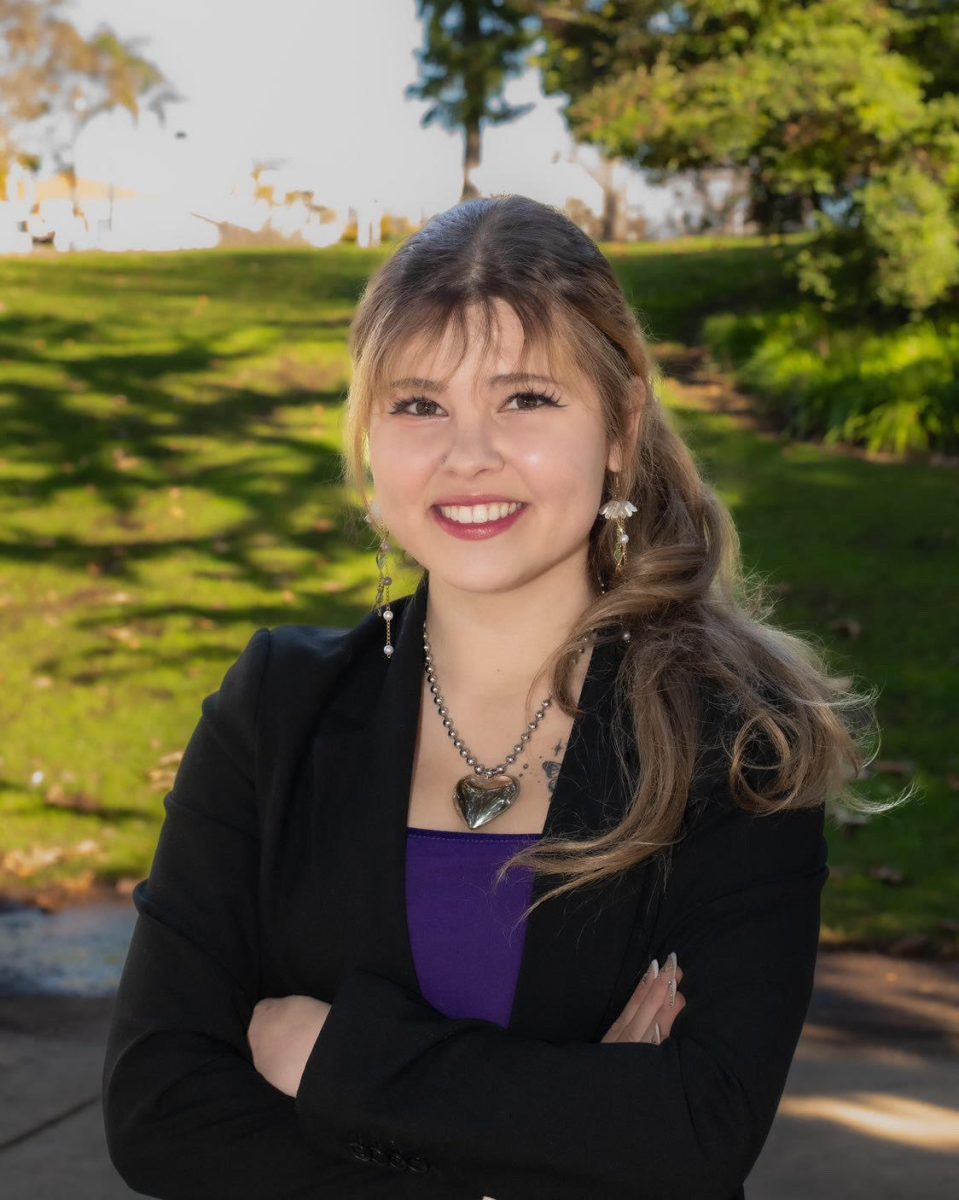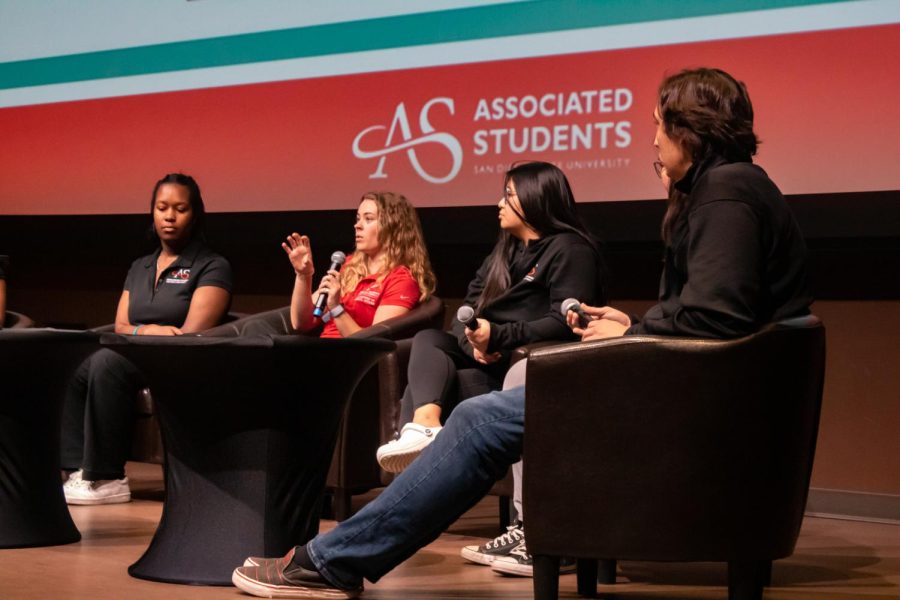The candidates for Associated Students Vice President of Financial Affairs and Vice President of External Relations debated on Zoom in sight of next week’s A.S. elections.
External Relations candidates Fabiola Moreno and Shawki Moore addressed issues on student housing, campus resources and outreach.
Moreno, who is running on the “A New Hope” slate, joined the external relations board and Lobby Corps three years ago as a freshman. She is also a member of the Educational Opportunity Program and works with San Diego City Council members. The candidate said that her consistent attendance at Cal State Student Association (CSSA) meetings makes her well fit for this position.
“For external relations, you really need to be in the realm of this area,” Moreno said. “You need to have been there throughout the years to see how the process has changed, you need to have gone to CSSA meetings to see how their advocacy and points work to translate to our university.”
Moore, who is running on the “SDSU Now” slate, serves on the executive board of the Afrikan Student Union and is Lieutenant Strategist for Kappa Alpha Psi. He said that, while his experience is outside the realm of external relations, his passion for advocacy and ability to connect with students makes him the best fit for the position.
“Advocacy does not mean that you have to know policy,” Moore said. “I can guarantee to this SDSU community that I will be on the frontlines fighting with you and making sure that your voice is heard. I can learn the policy, I can gain the experience… All you need to know is how to advocate and how to connect with students and make sure your voice and the student voice matters.”
Moreno said that she prioritizes expanding basic needs, student resources and civic engagement.
”We need to make sure that we advocate for mental health to be a basic need,” Moreno said. “We also need to make sure that internet access and bandwidth is being promoted, enhanced and advocated for.”
Moore said that his priorities lie within student outreach, engagement and connection. He suggested creating a platform similar to a town hall where students and faculty can collaborate to vocalize their concerns.
“I want to be the connection between traditionally silenced communities and Associated Student leaders,” Moore said. “I want to go into these silenced communities and understand their fights and needs and have A.S. listen”
Both candidates agreed that Associated Students must make their work more accessible and visible since student participation is important for advocacy. Moreno discussed her ideas for transforming “Rock the Vote” into a platform for students to engage in issues that are only relevant to themselves.
Moore also noted potential issues involving the Mission Valley campus project, specifically sustainability and accessibility.
“I would want to… make sure that students and undergraduates do not have to take classes at this facility because we need to focus on the main campus,” Moore said. “As well as working with the CSU… to make sure that no student has to pay for any fees going to Mission Valley.”
The two candidates also strongly advocated for more student jobs on campus, specifically due to the loss of opportunities resulting from COVID-19. They also agreed on more diversity, inclusion and equity on campus. Moreno noted specifically the inequity for undocumented students.
“Undocumented students don’t get all the money that students with status get,” Moreno said. “To make sure we uphold undocumented students and are advocating for them.”
The full recording of this debate is available here.
A.S. Vice President of Financial Affairs candidates Austin Barber and Abigail Tamayo debated issues of financial transparency, expanding funding to organizations and halting the implementation of new campus fees.
Barber, representing the “SDSU Now” slate, said his time on the A.S Financial Affairs Committee, and his work on the Interfraternity Council is the experience needed for the role.
Tamayo, representing the “A New Hope” slate, highlighted her three years of experience in A.S. and her time working as the director of fundraising for the non-profit organization Tijuana Home Build. Tamayo said her experience outside of Greek life, and as a student of color, qualifies her to serve all of SDSU’s campuses.
“I am actually not in Greek life, and I am that voice that is outside of that community,” Tamayo said.
All candidates running for executive positions on the “SDSU Now” slate are members of a Greek organization on campus.
Barber said he wants to use his platform to promote the positive aspects of Greek life, like leadership and community, and leveraging them to support all communities on campus.
“There is no definition that defines SDSU,” Barber said.
The two candidates plan to expand funding for the Economic Crisis Response Team (ECRT) if elected; a financial lifeline for students that has seen a rise in need due to the COVID-19 pandemic. Barber and Tamayo both said they would prioritize appropriating unused A.S. funding.
Barber said utilizing unallocated funding in the A.S. budget in a way that provides targeted financial assistance to the underrepresented parts of the SDSU community is a focus for his campaign.
“When it comes down to the role of VP of Financial Affairs, and making sure that all communities are heard, it really is bringing out those unallocated funds and making sure every student has an opportunity to finance their organizations on campus,” Barber said.
With the rise in food insecurity due to COVID-19, Tamayo said her focus is to see the A.S. food pantry become a permanent and full-time, rebranded food market; creating student employment opportunities.
“As food insecurities start to increase, students are starting to rely on this source. It can be very inconvenient for them to have to wait every other day,” Tamayo said.
Barber said his first goal would be to establish transparency in the A.S. budget. He said using marketing as a tool to educate students on spending and available resources will foster a more equitable distribution to funding for underrepresented groups.
“Making sure students know how much money is left and how they can get these finances are essential to the student body utilizing this funding,” Barber said.
Tamayo wants to create a program that allows students to put unused dining dollars towards the ECRT. Tamayo plans to include student voices in the implementation of category four student fees.
These fees, proposed and approved by the President’s office do not require student approval via a referendum.
“These student body voices should be heard by President De La Torre,” Tamayo said.
A full recording of this debate is available here.
Voting in the 2021 A.S. Election begins March 22 and goes through March 25. All SDSU students can cast their ballots on the SDSU Webportal.









